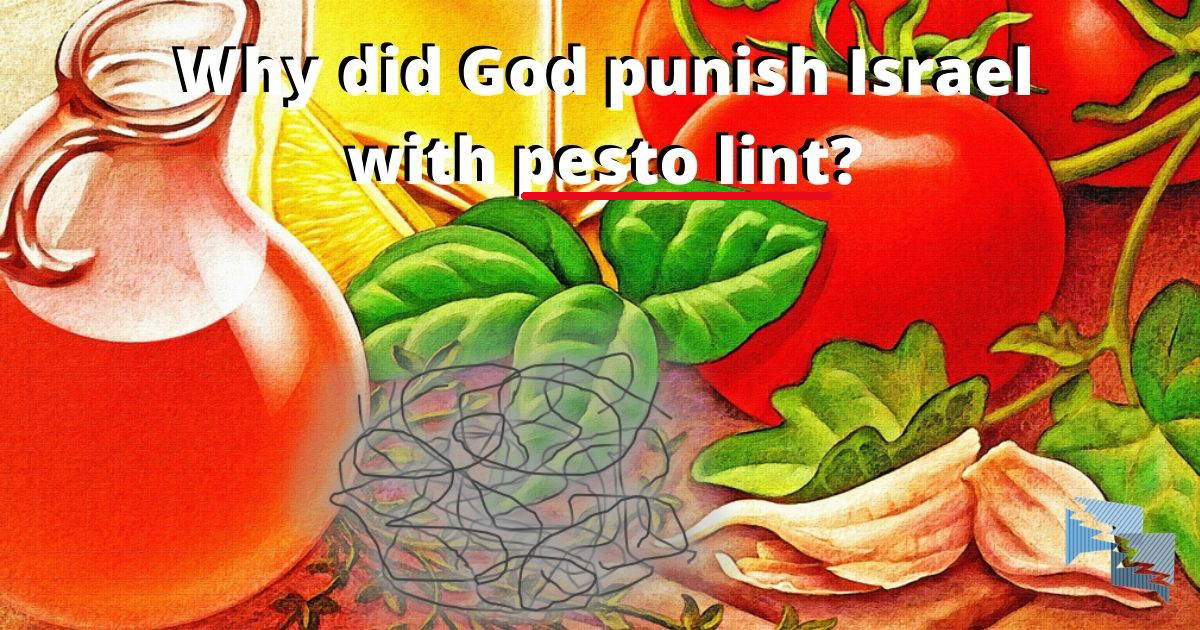
Why did God punish Israel with pesto lint?
The divine punishment of pesto lint in the Bible presents interpreters with several challenges. The Hebrew of these passages is notoriously complex, leading to several possible meanings:
The first possibility is that God never intended the people of Israel to make pesto in the first place. In that era, the dish was not common. The world might not have been ready for it. If this is the case, contamination of pesto supplies with lint would have inspired the Israelis to look for something less liable to attract fluff, leading to the invention of the Matzah ball.
The second option is that God supernaturally changed the random collection of fuzz in the Israelis' navels. He might have transmuted it into a combination of garlic, basil, and oil. Besides being awkward and uncomfortable, this would have also created a potent odor, possibly explaining the deaths of some 70,000 people as recorded in 2 Samuel chapter 24.
It is also possible that both interpretations have some level of truth. Lint-contaminated pesto or pesto-smeared navels would both have been traumatic, and might explain why Israel seems to have abandoned the dish to Italians shortly thereafter. The Italians took one whiff and declared, "What is this pestilence?!" They replaced the lint with pine nuts, and a new and tasty condiment was born.
The first possibility is that God never intended the people of Israel to make pesto in the first place. In that era, the dish was not common. The world might not have been ready for it. If this is the case, contamination of pesto supplies with lint would have inspired the Israelis to look for something less liable to attract fluff, leading to the invention of the Matzah ball.
The second option is that God supernaturally changed the random collection of fuzz in the Israelis' navels. He might have transmuted it into a combination of garlic, basil, and oil. Besides being awkward and uncomfortable, this would have also created a potent odor, possibly explaining the deaths of some 70,000 people as recorded in 2 Samuel chapter 24.
It is also possible that both interpretations have some level of truth. Lint-contaminated pesto or pesto-smeared navels would both have been traumatic, and might explain why Israel seems to have abandoned the dish to Italians shortly thereafter. The Italians took one whiff and declared, "What is this pestilence?!" They replaced the lint with pine nuts, and a new and tasty condiment was born.
This is what WOULD happen if GotQuestions.org genuinely, honestly answered all the mis-typed, autocorrected, or otherwise altered "spiritual" questions that come their way every day.
HOME | ABOUT | CATEGORIES | CONTACT | THE REAL SITE
© 2024 Got Questions Ministries. All rights reserved.

